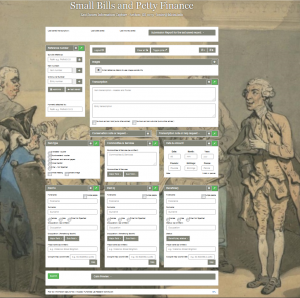
The Old Poor Law, which operated in England and Wales from 1601 to 1834, became a very significant example of early local government. Parishes collected money from prosperous inhabitants, and distributed cash or goods to people otherwise too poor to make ends meet. Up to now, historians have chiefly been interested in the law for its impact on the behaviour and welfare of the poor. In this project we have the opportunity to look again at the poor law, this time with a focus on the people who ran the law and who supplied the goods to the poor. We can do this by unfolding and interpreting the multitude of receipts or ‘vouchers’ that lie currently unread in parish archives but which give details of the tradesmen, professionals, parish officials, and others who made the poor law work.
The vouchers survive in such large numbers that they defy the efforts of individual researchers. We could not undertake this project without our volunteers’ willingness to read and catalogue their contents. If you think you could spare a few hours to help out then get in touch using the link below. The project currently operates in Cumbria, Staffordshire and East Sussex. Our volunteering page for each of these counties gives details of the days and times that our research volunteer groups meet. If you don’t live near the county record office in any of these areas then you could still help out by transcibing and categorising documents online.
The project has now CLOSED.